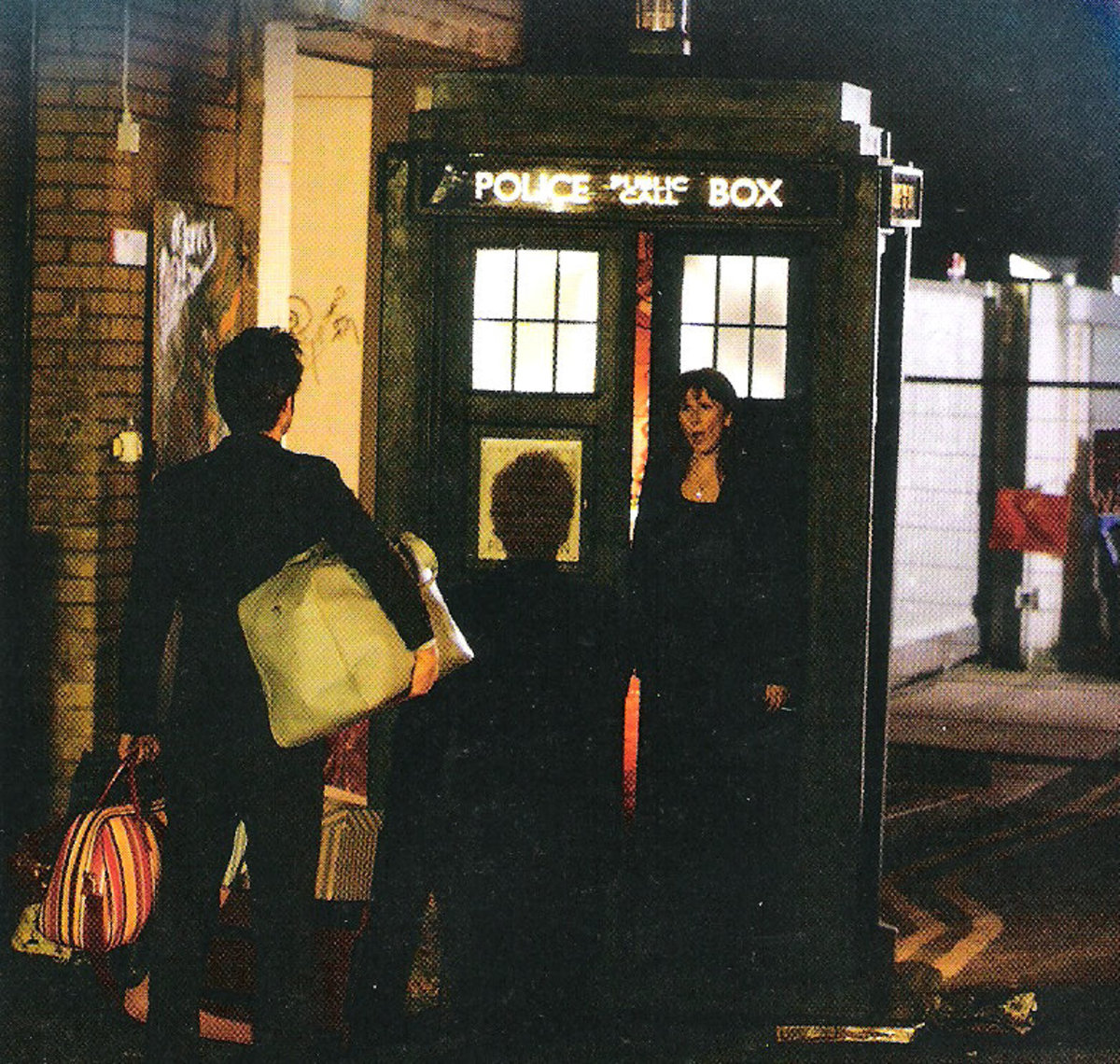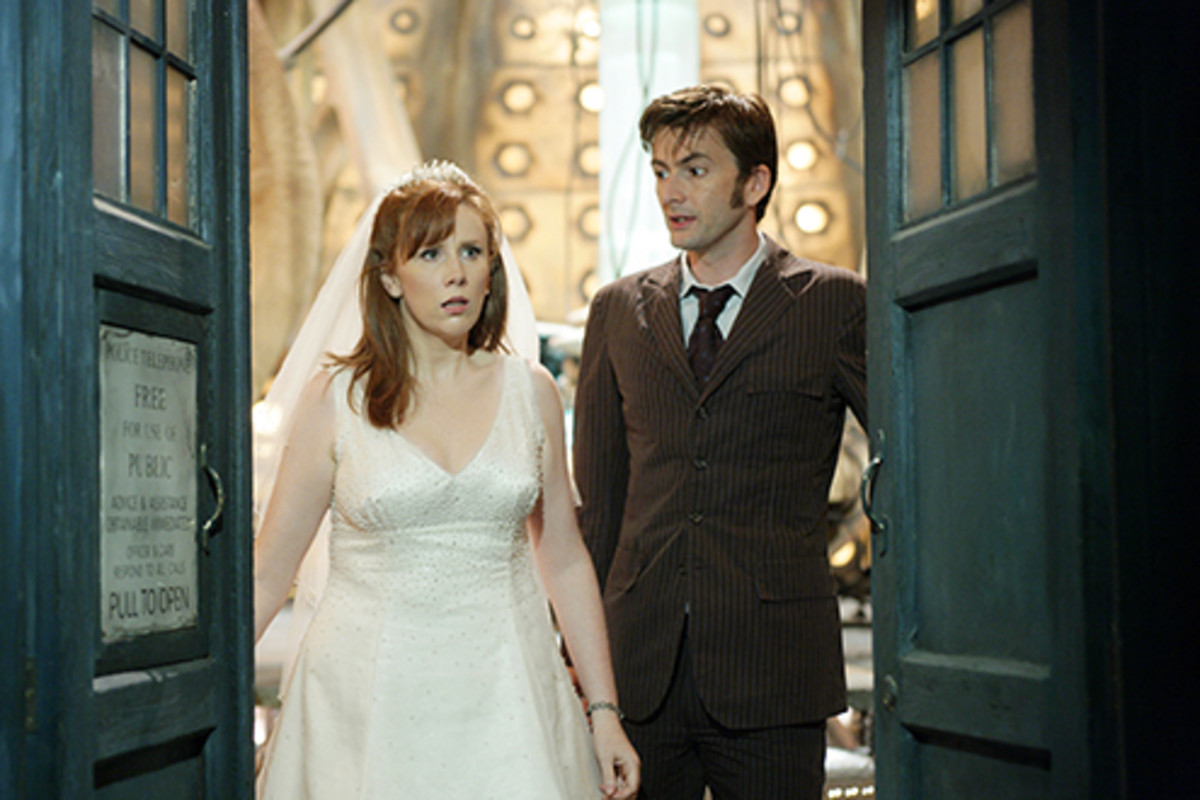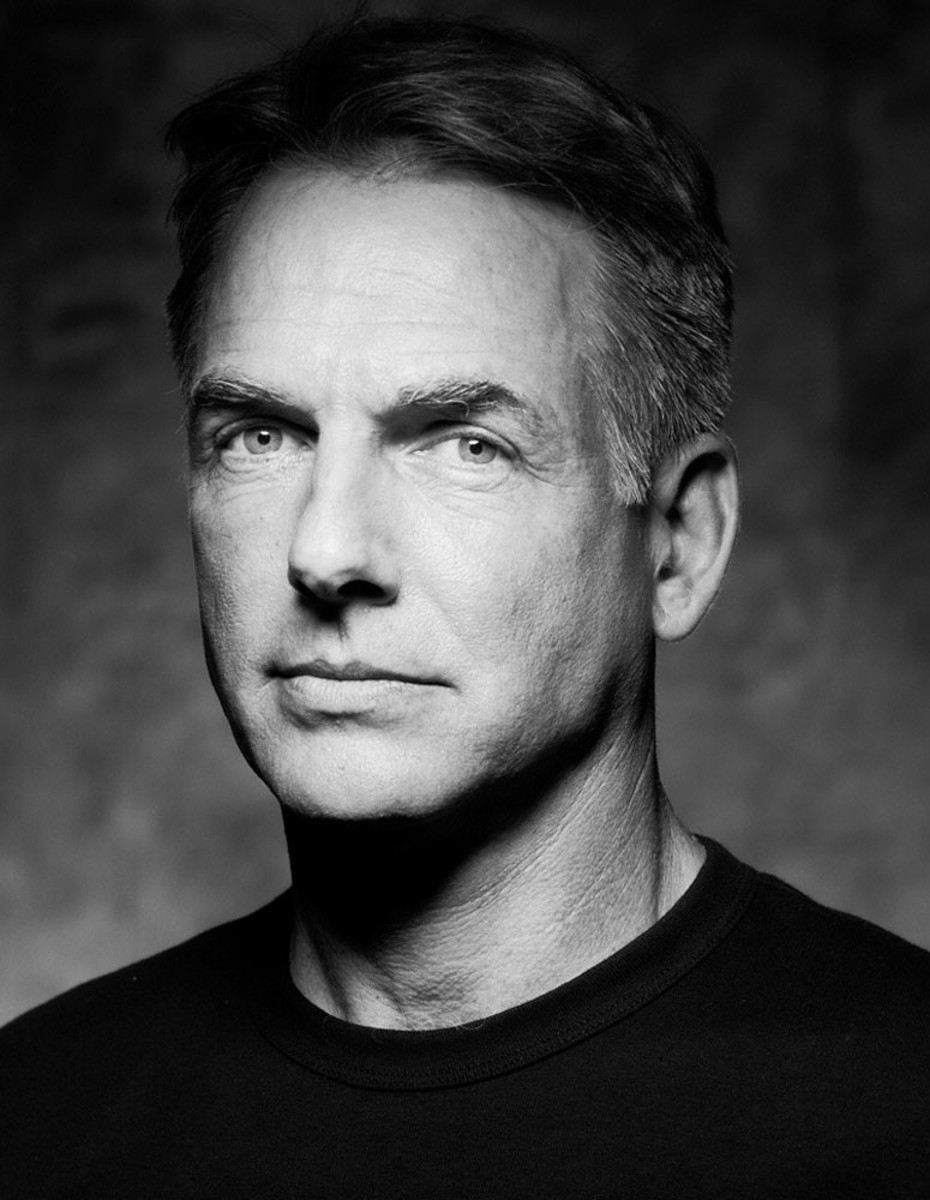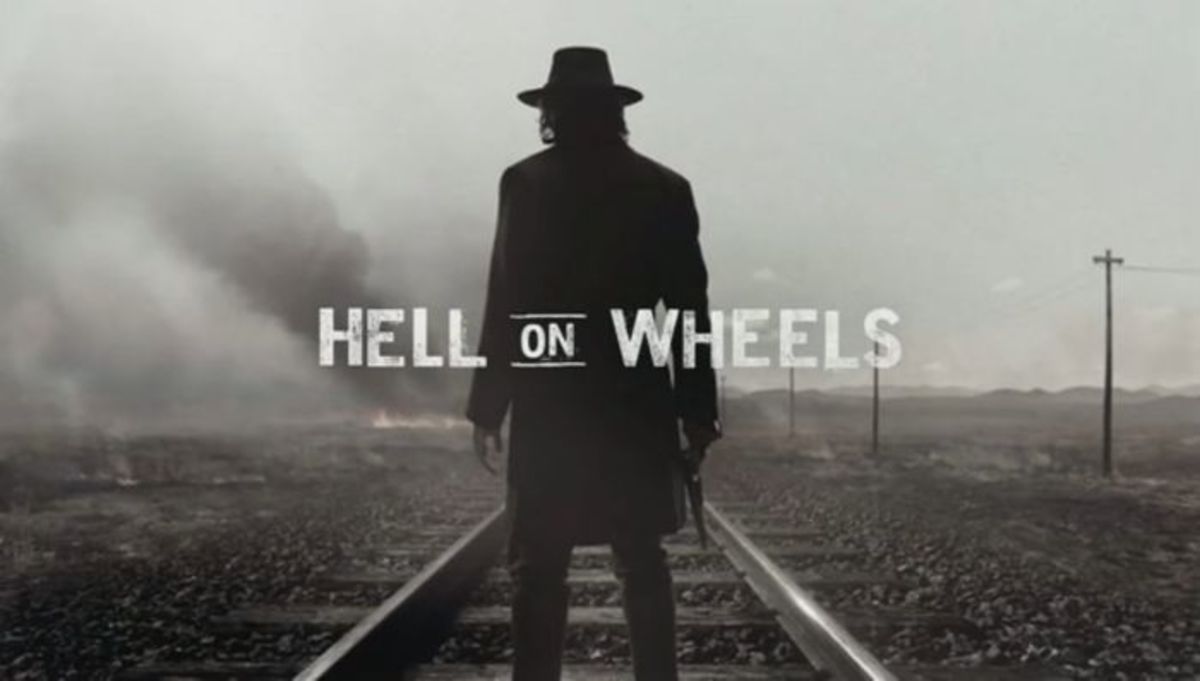Ten Essential Eleventh Doctor Moments
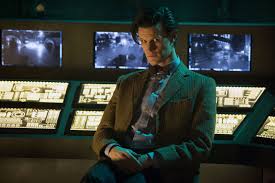
The science fiction paragon, Doctor Who, underwent a speculative and daunting subjection in 2010, as the new year marked a new series, a new interpretation of the persona of the titular Doctor, and even a new showrunner; An entirely new, ambitious and trailblazing new era for the show that had to make a burgeoning, optimistic and enticing impact on audiences, due to the sheer anticipation of what has become heralded as a monumental event in all of British and world television. Countless parallels have been drawn between the transitionary period of the keys to the TARDIS from the custody of Russell T Davies and David Tennant to Steven Moffatt and Matt Smith respectively to the alteration in the alignment of the classic era of the program, when Tom Baker's dominantly captivating Fourth Doctor to Peter Davison's more reserved, but equally endearing Fifth.
Such comparisons have been made, of course, due to the fact that the literal logistical regeneration of the show from an astronomically beloved Doctor that has garnered a paramount prestige of esteem and cultivated adored adulation atop a pinnacle echelon of the attributing zeitgeist's veneration was a drastic and potentially perturbing prospect. Of course, in both respective generations, the show had assembled stable and respectable foundations of consistency in fan affection at the very least, and even the most established and talented contributors to the dignified property would be faced with the unenviable and thankless task of potentially plunging the reputation of the iconic image of Doctor Who into ruinous misery.
They could have even handled the project with objective competence and proficiency, but a failure to strike the correct, harmonious chord of resonance with the loyal and highly anticipating audience could have resulted in a recipe for destruction that would spell disaster. Thankfully, in both instances, crises were not only averted, but the eminent stature and magnificent appeal of the program were not only maintained, but expanded to entice an even broader spectrum of viewers. Doctor Who today is more pandemic and pervasive than ever, and that is primarily due to the pioneering strides made by the revival series in the Ecclestone/Tennant era that permitted the laying of foundations for Matt Smith to take cues from and enhance.
What drew more similarities between Davison and Smith was the fact that they were both the youngest uninitiated actors to take on the mantle at the times, and they were thrust into situations that could have been ominous and beleaguering, and forced a capitulation attributed to the intimidation of the onerous weight of the necessitated skill and prowess. Matt Smith had the desire to prevail though, and with a theatrical acting background, and the committment to research the honoured history of the role, he relied on the accumulated wealth of his resourceful harnessing, and was an emergent success-Contributing some of the most philosophically seminal and salient sentiments and moments to the lore of the show. In less than half a decade, he has perpetuated the precedent of becoming yet another of a vast catalogue of beloved and favoured Doctors, that were all similar on that predication, but distinguished by the virtue of their uniquely enigmatic eccentricities. A life is a collection of moments, and the life of the Eleventh Doctor was defined by his socialistic estrangement and simultaneously courageous and noble empathy. A selection of some of those best moments are regarded with reverence in the following listicle.
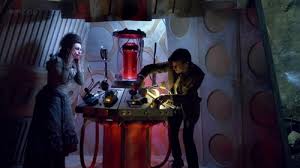
10. Encounter With Idris(The Doctor's Wife)
The Doctor, Amy Pond and her husband, Rory Williams, landed on a mysterious and peculiar wasteland of a planetary body, and found themselves in a space vessel scrapyard, overflowing with the spare parts of wrecked ships that had docked there in a presumably disastrous state. There was nothing too bizarre or misplaced about the appearance of the environment at face value, but there was a detectable perplexity to the aura of the atmosphere. Once docked and organised, they continued with the typical procedure of venturing out curiously, and were faced with the patchwork people Uncle and Auntie, the Ood, Nephew, and the incarcerated Idris. She had immediately seemed an off-kilter and bewildering specimen, and it transpired that it was a consequence of the incarceration of her within the depths of the sentient planet, House, against her will.
Uncle, Auntie and Nephew inhabited the being in exchange for the luring of unsuspecting wandering victims to what was not a scrap heap, but a graveyard of the travellers that fell prey to the ingestion of their vessels and their souls. There was another tier to the many layers of the labyrinth, which was the fact that it was no ordinary graveyard, but one for TARDIS's predominantly. The impetus for their arrival there was the summoning via a distress beacon after all, and it came as a result of a desperate plea of the previous Time Lord casualty as the attempt of the matrix of their TARDIS was to be merged with Idris, and their appendages were salvaged for amalgamation with the rest of the patchwork people's bodies. The soul of the TARDIS was absorbed by Idris, and the ship's conscious inundated hers.
Such an atrocity of the syphoning of a ship to cause the suffering of another was immediately berated by the Doctor upon discovery, and the redundancy of the TARDIS's operation impelled the resourcefully engineering genius of the Doctor to construct a makeshift machine with assistance from Idris to prevent the overwhelming of his original ship's circuits by House-Who resolved to return to the mainland of the universe and wreak havoc. It culminated in the convention in the control room of the TARDIS, where the rapidly deteriorating Idris, the Doctor and their accommodated companions defeated House by the dispersion of the matrix into the vicinity after Idris's death.
The significance of the entire affair was founded in the fact that it was a pioneering exploration that brought intimate dynamic dimensions of chemistry in the relationship of the entities of the Doctor and his ship to the forefront of physical manifestation, and exhibited the possessive protectiveness they had over one another:
IDRIS: I'm the. Oh, what do you call me? We travel. I go-
DOCTOR: The Tardis?
IDRIS: Time And Relative Dimension In Space. Yes, that's it. Names are funny. It's me. I'm the Tardis.
DOCTOR: No, you're not. You're a bitey, mad lady. The Tardis is up and downy stuff in a big blue box.
IDRIS: Yes, that's me. A Type Forty Tardis. I was already a museum piece when you were young, and the first time you touched my console you said
DOCTOR: I said you were the most beautiful thing I had ever known.
IDRIS: And then you stole me. And I stole you.
DOCTOR: I borrowed you.
IDRIS: Borrowing implies the intention to return the thing that was taken. What makes you think I would ever give you back?
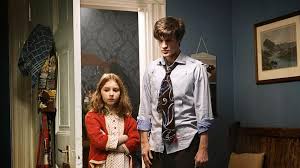
9. Encountering Amelia Pond/"The First Face"(The Eleventh Hour)
The Doctor had just regenerated in an explosion that had ravaged the TARDIS interior and forced the descent into the uncontrolled chaos that caused the impact on the surface of the Earth, in the most quaint, and insignificantly remote garden of a domestic home in Leadworth. Again an encounter from the most coincidental of circumstances, the young Amelia Pond hosted him after his collision with her garden shed, and accommodated him as best as possible as she stood witness to him going through the motions of a typical post-regeneration recovery. Hers was "the first face [his] face saw", and he was eternally grateful and appreciative of that honour, as it became a value he prided that initial interaction upon.
He did inadvertently leave an indelible impact on the impressionable and imaginative mind of the child when, after configuring his coordination, he departed temporarily to refresh the navigation circuits of the TARDIS and returned on the promise of a five minute absence-But he exceeded the boundaries of his target duration to that of twelve years. Upon investigating into the house with a miraculously repaired shed, he was assailed by the striking of a cricket bat from an unidentified source, that eventually revealed itself to be the matured and traumatised Amy Pond-Who, after years of derision and patronising counselling over the hysteria of the fixation on the fictional conception of the "Raggedy Man", had grown incredibly resentful of the Doctor. It became the source of a deal of guilt and shame for him, and repentant gratitude for her amassed unconditional faith placed in him. Their relationship grew to blossom, despite the monstrous brutality they were subjected to.
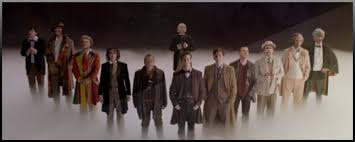
8. "Where I'm Going"(The Day Of The Doctor)
The gravity of the pure marginal magnitude of the events endured throughout The Day Of The Doctor was conveyed with an imposing emphasis and a sheer force of grandiose and operatic action. The beleaguering conflict and necessitated and incentivised resolve of persevering interference with the Doctor's own time stream came thick and fast, and the peril was almost unwilling to relent-Until he summoned all of his former incarnations and his future successor to engulf Gallifrey in a protective seal of a time bubble paradox; Secured away in a pocket of space and time, and liberated from the barbarous disaster of the Time War.
It was only upon the unconfirmed success of the completed execution of that deed of magnanimity that the Doctor was allocated the reprieve and relief to relax, and contemplate the significance of what he had just accomplished and the then recuse himself further to ponder over the elements of minutia informing his curious anticipation of his destiny. From the initiatory phases of his experience in his present cycle, it had been prophesied and foreshadowed to him that he was simply biding his time, and awaiting an inevitably impending fate of his mortality on the planet Trenzalore. But in full adherence to the staple traits of his character, he had been vain and stubborn enough to resist conformity to such a guarantee, and implemented every necessary precaution in order to prevent his death.
He even maintained the philosophy that spurred the most informative action of his entire lives, by repeating his recurring habit of running, to an astounding degree of success. He reversed the stipulations of the unavoidability of his death at Lake Silencio with an admirable reckless attitude to the dynamics of a fixed point in time, and defied the ominosity of the forecast of his fate on Trenzalore as it was articulated to him as more of a threat or an ultimatum than anything else. However, after losing Amy, Rory and River, and revisiting the tragedies of the extinction of his own race, he was finally granted the clarity to simply embrace where it was he was going, and illustrated as much with the recital of a conversation he had shared with Clara:
"Clara sometimes asks me if I dream. Of course I dream, I tell her. Everybody dreams. But what do you dream about, she'll ask. The same thing everybody dreams about, I tell her. I dream about where I'm going. She always laughs at that. But you're not going anywhere, you're just wandering about. That's not true. Not any more. I have a new destination. My journey is the same as yours, the same as anyones. It's taken me so many years, so many lifetimes, but at last I know where I'm going. Where I've always been going. Home, the long way round."
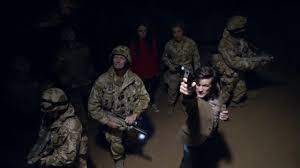
7. "There's One Thing You Never Put In A Trap"(The Time Of Angels)
By the time the TARDIS transported its occupants and the Whovian audience to the events of the crash of the Byzantium, most of the clamouring and devoted fans of Doctor Who had come to accept, and even adore in some cases, Matt Smith's Eleventh Doctor as a fantastic new custodian of the key to the time and space vessel, and to the hearts, minds and souls of those spectating its adventures. There was a minority that were still dissatisfied and were contemptuously dismissive and disparaging of him though, as he had lacked a truly defining and distinguishably potent moment that would serve to ingratiate them-Bar perhaps the charismatic and audacious address of warning to the Atraxi merely hours after assuming his new form.
When the Weeping Angels descended to condemn Father Octavian, his clerics and the imprisoned Professor River Song under their jurisdiction, the Doctor elected to intervene and defend them against the full might of a volatile and unrestrained force of time's very perplexing nature. These Angels were deprived and desperate, which made them significantly more perilous and intelligent. As the TARDIS crew and their adopted acquaintances sculked around the shadows of a cavern suffused with a collection of indistinguishable angel statues unconsciously harbouring true Weeping brutes, they gradually began to diminish in numbers, as they were being stalked and dispatched individually.
One cleric, in particular(Bob), had the unfortunate fate befall him of having his neck snapped and subsequently transforming into an Angel himself-A transgression that the Angels were typically averse to committing, in favour of the transportation of their victim back through time. The horror of that knowledge was only amplified by way of the Doctor's notification of the divulgence from Bob himself, who was in radio contact with the group by way of relay handset devices. Events finally reached a climax, when the group became surrounded by the infesting swarm of Angels and had their backs to the walls in a trap, with only the illumination of a gravity globe to comfort them.
This was the prime opportunity for the Eleventh Doctor to flaunt his credentials as a benevolent, but ruthless insubordinate to oppression, as he conveyed a revolution of the dictation of stakes to him, and instead warned all the Angels through his communication with Angel Bob:
DOCTOR: You lot, trust me?
MARCO: Sir, two more incoming.
OCTAVIAN: We have faith, sir.
DOCTOR: Then give me your gun. I'm about to do something incredibly stupid and dangerous. When I do, jump!
OCTAVIAN: Jump where?
DOCTOR: Just jump, high as you can. Come on, leap of faith, Bishop. On my signal.
OCTAVIAN: What signal?
DOCTOR: You won't miss it.
BOB: Sorry, can I ask again? You mentioned a mistake we made.
DOCTOR: Oh, big mistake. Huge. Didn't anyone every tell you there's one thing you never put in a trap? If you're smart, if you value your continued existence, if you have any plans about seeing tomorrow, there is one thing you never, ever put in a trap.
BOB: And what would that be, sir?
DOCTOR: Me.
He shot the gravity globe, and literally turned the progression of events on its head, by making the unilateral decision to take the reins of the perturbing situation with an impossible solution. It was an audacious and resilient triumph that won a small battle in contribution toward the victorious emergence from the war.
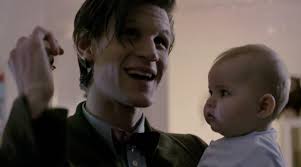
6. Stormaggedon(Closing Time)
The Doctor was no foreigner to forays in the flamboyant enterprises and labours that he had participated in on a regular basis, and had become very regimented and set in the formulated procedure of his ventures, for someone that took delight in the flagrant frivolity of arbitrary endeavours. When the Cybermen had audaciously interloped a Colchester shopping mall with aspirations to convert it into the preliminary headquarters for operation as they expanded out and upgraded the Earth, the Doctor had become very wary of the residual impact he left on the lives he made, with even a transient period of occupancy within them.
Cognizant and aware of the death sentence he had just been accursed to, he began the cycle of a "farewell tour" in a casual, but brief final interaction with all of those whom his Eleventh incarnation had encountered-Beginning with Craig Owens, who he had assisted in the relinquishment of a mysterious extraterrestrial ship residing above Craig's home on his previous visit; Seeing him inspire Craig to save himself and eventual girlfriend Sophie from the confines of the ship masquerading as the upper level of the flat via implementation of a perception filter. His intention was the perpetuation of his ideological complex of fleeting involvement before a prompt departure, but he convinced himself to take up temporary residence and to investigate the curiosity of the discovered Cybermat.
The refrain from the monumental overarching importance of the preservation of the welfare of the citizens from the malignant threat of the Cybermen returned to a more domestic climate once again, and shone a more unique hue of that light upon the Doctor; Where formerly, his fiendish penchant for the delivery of his profound philosophy via the medium of soliloquies was deployed to confront, defeat and circumvent, the speech he regaled the infant Alfie(under the preferable moniker, Stormageddon) into sleep with was a more casual onset of gentle thoughts designed to invite the baby and the audience to stand witness to a perspicacious insight to the Doctor's vulnerable, compassionate side:
"Hello, Stormageddon. It's the Doctor. Here to help. Shush. Hey. There, there. Be quiet. Go to sleep. Really. Stop crying. You've got a lot to look forward to, you know. A normal human life on Earth. Mortgage repayments, the nine to five, a persistent nagging sense of spiritual emptiness. Save the tears for later, boy-o. Oh, no. That was crabby. No, that was old. But I am old, Stormy. I am so old. So near the end. You, Alfie Owens, you are so young, aren't you? And, you know, right now, everything's ahead of you. You could be anything. Yes, I know. You could walk among the stars. They don't actually look like that, you know. They are rather more impressive. Yeah. You know, when I was little like you, I dreamt of the stars. I think it's fair to say in the language of your age, that I lived my dream, I owned the stage, gave it a hundred and ten percent. I hope you have as much fun as I did, Alfie."
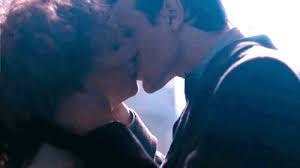
5. "You Are Always Here To Me"(The Name Of The Doctor)
The Doctor really came into the realms of embracing an aura of omnipotence and deus ex machination through the vices of David Tennant's and Matt Smith's portrayals of the Tenth and Eleventh Doctors respectively, as both a condemnation and a commendation of the character's representation throughout the modern era of the series. It was often exhibited through the overt exertions of his prowess in circumventing and overcoming virtually any situation with inexplicably unimaginable solutions to whatever beleaguering adversity confronted him, and rarely ever through a more innocuous and plausibly ordinary method of conveyance. The way in which that ability was presented when the Doctor was thrust into the most vulnerable and perilous situation he had ever encountered, of the subjection of his ver time stream to the rampaging destruction of the Great Intelligence, was executed in a more endearing and subtlely compelling manner than had been explored previously.
River, who had passed on, was in constant presence in spirit form, and was only able to communicate with Clara as the Doctor, his assistant and the Paternoster gang were lead to the tomb of the Time Lord and was a consistent voice of reassurance for her. But she only wished she could have revealed herself to her husband, who was ostensibly oblivious to her eminence in his proximity. However, a shocking revolution was implemented into the atmosphere when, after Clara entered his time stream in attempts to revert the devastation that the Intelligence had unleashed upon his past and he aimed to rescue her from the implicated peril she had voluntarily subjected her to, he revealed that he had deceived her with a facade, instead of her level of superior competence taking precedent:
RIVER: Doctor, please listen to me. At least hear me.
DOCTOR: Now, if I don't come back, and I might not
RIVER: Doctor!
DOCTOR: Go to the Tardis. The fast return protocols should be on. She'll take you home, then shut herself down.
RIVER: There has to be another way. Use the Tardis, use something. Save her, yes, but for God's sake be sensible- How are you even doing that? I'm not really here.
DOCTOR: You are always here to me. And I always listen, and I can always see you.
RIVER: Then why didn't you speak to me?
DOCTOR: Because I thought it would hurt too much.
RIVER: I believe I could have coped.
DOCTOR: No, I thought it would hurt me. And I was right.
It was an exemplary exhibition of his endlessly unconditional affection and his enigmatic genius as a universally literal visionary. And a conclusive consummation of his bodacious bond with River.
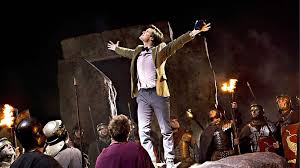
4. "Hello Stonehenge"(The Pandorica Opens)
The Doctor had spent the majority of his life, transcending cycles, as a profoundly theatrical and operatic being-Capable of remarkable feats of clarity, sagacious perspicacity and proverbial astonishment to a seemingly boundless exuberant gratification. He derived great pleasure from the pride he took in being able to orate great serenades to comfort and reassure allies, and simultaneously intimidate villainous opponents running afoul of his virtuous authority. The opening of the Pandorica was such a fabled and anticipated event, that it attracted spectators from all of the most tyrannical and oppressive species of lethal cruelty, that even refrained from attempting to annihilate each other while orbiting the location of the magnificent object's situation-Stonehenge.
On the surface, the Doctor, Amy, and a legion of Auton warriors disguised as Roman soldiers lead by Amy's fiance Rory(himself an Auton replicant) were occupying the vicinity of the mechanism, while above, the Daleks, the Cybermen, the Sontarans, the Terileptils and a whole manner of brutish scourges circulated in attendance. Perhaps too complacent in he self-assuredness that what he was about to wax poetic with would prevail in deterring his foes, when what eventually happened to him is taken into consideration; But the grasp of arresting attention he held the malicious menaces prisoner to(along with the audience) with a vice grip was mesmerising and his bravado and courageously brash address toward the permeating legions really validated his acclamation as "the man that could [silence] an army at the mention of his name" and a compelling speech:
"Hello, Stonehenge! Who takes the Pandorica, takes the universe. But bad news, everyone, because guess who? Ha! Listen, you lot, you're all whizzing about. It's really very distracting. Could you all just stay still a minute because I am talking! The question of the hour is, who's got the Pandorica? Answer, I do. Next question. Who's coming to take it from me? Come on! Look at me. No plan, no back up, no weapons worth a damn. Oh, and something else. I don't have anything to lose! So, if you're sitting up there in your silly little spaceship, with all your silly little guns, and you've got any plans on taking the Pandorica tonight, just remember who's standing in your way. Remember every black day I ever stopped you, and then, and then, do the smart thing. Let somebody else try first."
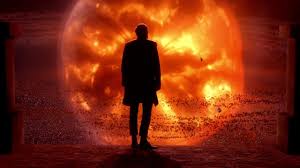
3. "Take My Memories"(The Rings Of Akhaten)
The full extent of the Doctor's experience enduring through the multitude of their amazing and intense adventures in the universe would be impossible to sufficiently explore in its entirety, due to the sheer volume of the varified versatility of their nature. And they only persist in accumulating a wealth of further experience as time echoes that continuation in its infinite perpetuity. While embellishing his resume with a visit to the civilisation of Akhaten with the Impossible Girl, they were both forced to bear witness to the brutal subjugation planet's society into subordinate worship of a so deemed "god" that would consume the soul of a reluctantly and apprehensively voluntary sacrifice on a periodic basis through ceremonial procedure.
Appalled at the deceptive duplicity of enticing an entire population under the secretively sinister will of a fallaciously interpreted benevolent entity, the Doctor and Clara resolved to intervene once again, and prevent further claims to lives that were wasted in the name of nothing more than an erroneous devotion to a fraudulent deity. Instead of resorting to tactics of deception, outwitting through superior intelligence, or even physical action, the Doctor decided that the most appropriate par for the course was to capitalise on an iteration of a method of negotiation, by regaling and surfeiting the beast's insatiable appetite with a recollection concisely summarising the most pertinent of his adventures:
"Okay, then. That's what I'll do. I'll tell you a story. Can you hear them? All these people who've lived in terror of you and your judgement? All these people whose ancestors devoted themselves, sacrificed themselves, to you. Can you hear them singing? Oh, you like to thing you're a god. But you're not a god. You're just a parasite eaten out with jealousy and envy and longing for the lives of others. You feed on them. On the memory of love and loss and birth and death and joy and sorrow. So, come on, then. Take mine. Take my memories. But I hope you've got a big appetite, because I have lived a long life and I have seen a few things. I walked away from the last Great Time War. I marked the passing of the Time Lords. I saw the birth of the universe and I watched as time ran out, moment by moment, until nothing remained. No time. No space. Just me. I walked in universes where the laws of physics were devised by the mind of a mad man. I've watched universes freeze and creations burn. I've seen things you wouldn't believe. I have lost things you will never understand. And I know things. Secrets that must never be told. Knowledge that must never be spoken. Knowledge that will make parasite gods blaze. So come on, then. Take it! Take it all, baby! Have it! You have it all!"
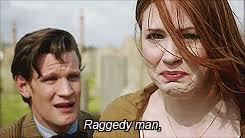
2. "Raggedy Man, Goodbye"(The Angels Take Manhattan)
One of the most esteemed recipients of the Doctor's highest regards and affection, and the source of the most intense degree of his emotional investment and faith was Amelia Pond. The first face his freshly regenerated face saw, the mother of his wife, his pride and joy, that a copious metric of his dignity and self-gratification hinged upon. He put a great deal of pressure upon himself to maintain his duty of care toward her and all those whom she cared about, and it was an unfortunately sorry state of affairs that such an intense commitment resulted in precisely what such a sincerely severe contrivance would do so-The eventuation of the obverse consequence.
It became a perpetual cycle of a revolving door of inconsistent returns-Alternating from sustained success for a brief period, to atrociously affecting and poignant losses on a critical scale. They were able to persevere through an incomparable sundry of tragedies, such as the horror of Demon's Run, the death and revival of Rory, the Doctor's apparent death and its evasion and much more, and were firing on all cylinders when they arrived in New York and were faced with the beleaguerment of the Weeping Angels. They hit a hitch when Rory was transported back to the 1930s via the touch of an Angel, and they pursued him in desperation, to only be subjected to some of the most affronting and intimidating peril that the Angels could muster.
After relentless trifling and toiling, they successfully managed to escape the malicious convergence of the sinister statues(via a paradoxical commitment of suicide at the most consequential stakes they had ever encountered) with the company of River once again, and arrived in a cemetery. As they thought they had prevailed in the circumvention of the tragic state of affairs, Rory discovered a gravestone with his name engraved in it, and as he beckoned for Amy's attention to acknowledge the peculiar coincidence, the most harrowing eventuation occurred; An Angel transported him back further once more. Left with no resort, as more tampering with the fixed point in time would fracture New York. Devastated at the loss of her husband and unwilling to abandon him alone, she left the Doctor in an unparalleled state of despair and heartbreak by allowing the Angel to claim her as well:
AMY: Doctor!
RIVER: Where the hell did that come from?
DOCTOR: It's a survivor. Very weak, but keep your eyes on it.
AMY: Where's Rory?
DOCTOR: I'm sorry. Amelia, I'm so, so sorry.
AMY: No. No, we can just go and get him in the Tardis. One more paradox.
DOCTOR: Would rip New York apart.
AMY: No, that's not true. I don't believe you.
RIVER: Mother, it's true.
DOCTOR: Amy, what are you doing?
AMY: That gravestone, Rory's, there's room for one more name, isn't there?
DOCTOR: What are you talking about? Back away from the Angel. Come back to the Tardis. We'll figure something out.
AMY: The Angel, would it send me back to the same time? To him?
DOCTOR: I don't know. Nobody knows.
AMY: But it's my best shot, yeah?
DOCTOR: No!
RIVER: Doctor, shut up. Yes. Yes, it is.
DOCTOR: Amy.
AMY: Well, then. I just have to blink, right?
DOCTOR: No!
AMY: It'll be fine. I know it will. I'll be with him, like I should be. Me and Rory together. Melody?
DOCTOR: Stop it. Just, just stop it!
AMY: You look after him. You be a good girl, and you look after him.
DOCTOR: You are creating fixed time. I will never be able to see you again.
AMY: I'll be fine. I'll be with him.
DOCTOR: Amy, please, just come back into the Tardis. Come along, Pond, please.
AMY: Raggedy man, goodbye!
DOCTOR: No!
The scene encapsulated the magnitude of the emotional gravitas imposed deep within his soul, as he was left alone to wallow in sorrow, despite his screaming protest of Amy's reluctant, but acceptive sacrifice.
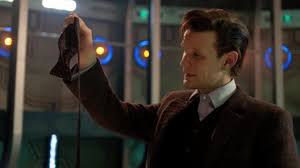
1. Regeneration(The Time Of The Doctor)
Regeneration is a famed and illustrious conclusion to the mortality of every Doctor's cycle that has become a ritualistic transpiration-The novelty of the impact of which has never become fatiguing after constant repetition, with the only distinguishable feature being the most prominent; The execution of the resonant note in which each respective Doctor departed the TARDIS on. In the instance of the Eleventh Doctor, the events that instigated his navigation of the contorting and bemusing labyrinth of the transitory tangle that the metamorphosis into an entirely different form would impel were those of yet another sacrifice. Having already embraced his projected fate inevitably impending on his destination of Tranzalore in just his previous adventure, the Doctor was gallant and courageous in the intrepid venture forth into the town called Christmas in defiance of the unavoidable sense of dread that the knowledge of one's own death would instigate.
He was admirably able to dismiss the narcissism that would inspire anyone else to flee, and instead stood as protector of the planet from all manner of the universe's most malignant brutes for many centuries, recruiting the severed Cyberman head torn asunder(affectionately designated "Handles" as the most emotionally compelling relationship was formulated with a mechanical head) and deceiving Clara to dismiss her for that time in protection of his friend. His body reached an extremely advanced stage of deterioration, yet still he remained the vigilant stalwart defender of the town that he was, protecting it from the siege of Cybermen, Sontarans, Weeping Angels and the Daleks of course. Events reached their culmination when he had ascended to the epitome of the brink of defeat-Not by the proficiency of the Daleks' oppression, but by the stagnating malaise of his age.
With nothing to bargain with, even if the Daleks were capable of diplomacy, no remaining capacity for another regeneration, facetious but morose levity, and with his back against the figurative wall-It took the return of Clara from her exile back home in the TARDIS, via the help of Tasha Lem, to negotiate with the Time Lords with incredible eloquence to convince them to grant the Doctor a new cycle through the ubiquitous crack in time and space, that had followed him everywhere from his very first escapade in Leadworth.
It is always an alarming process, and would be approached with apprehension by even the most rationally logical mind, but the Doctor courageously exploded and destroyed the scourges from Skaro. After wading through the mire of the debris, Clara entered the TARDIS again to find the Doctor rejuvenated once more due to the commencement of his regeneration, and pleaded with him not to change, but he could not dictate his nature, and held onto his last moments in order to relish the hallucination of the first face his face saw, and to orate a sentimental and sorrowful but also appreciatively celebratory and optimistic speech exemplifying the greatness of his graceful gratitude-In the satisfactory completeness and the tranquil equilibrium of the amicable terms in which he left on:
DOCTOR: Taking a bit longer. Just breaking it in. Oh. Oh. Gah. It all just disappears, doesn't it? Everything you are, gone in a moment, like breath on a mirror. Any moment now, he's a-coming.
CLARA: Who's coming?
DOCTOR: The Doctor.
CLARA: But you, you are the Doctor.
DOCTOR: Yep, and I always will be.
DOCTOR: But times change, and so must I.
DOCTOR: Amelia?
CLARA: Who's Amelia?
DOCTOR: The first face this face saw. We all change, when you think about it. We're all different people all through our lives. And that's okay, that's good, you've got to keep moving, so long as you remember all the people that you used to be. I will not forget one line of this. Not one day. I swear. I will always remember when the Doctor was me.
AMY: Raggedy man. Good night.

